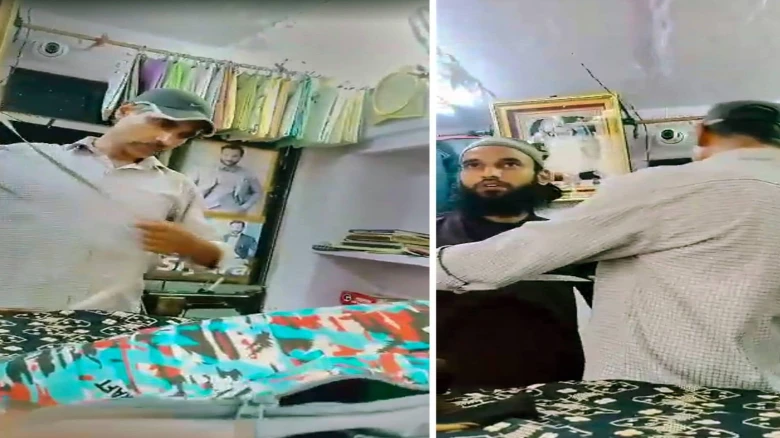Regional

After killing a tailor in Udaipur for allegedly advocating blasphemy and heading to record another video at the Ajmer Sharif shrine, the two suspects were detained by the Rajasthan Police in Rajsamand.
color:black;mso-themecolor:text1">
color:black;mso-themecolor:text1">Digital Desk: According to people familiar
with the investigation, the two self-radicalized murderers had ties to the
extremist Dawat-e-Islami organisation in Karachi, which is connected to the
Barelvi Tehreek-e-Labbaik group in Pakistan. This was revealed as a result of
the investigation into the brutal murder in Udaipur.
color:black;mso-themecolor:text1">
color:black;mso-themecolor:text1">Riyaz Attari, 38, of Bhilwara, and Ghous
Mohammed, 39, of Udaipur, beheaded tailor Kanhaiya Lal on Tuesday with knives
for endorsing former BJP politician Nupur Sharma's remarks on the Prophet Mohammed.
The knives were made for butchering by Attari, a welder, long before the
Prophet's comments controversy.
color:black;mso-themecolor:text1">
color:black;mso-themecolor:text1">After killing a tailor in Udaipur for
allegedly advocating blasphemy and heading to record another video at the Ajmer
Sharif shrine, the two suspects were detained by the Rajasthan Police in
Rajsamand. Within their WhatsApp group, the two Islamists had already shared
the murder footage, which quickly went viral following the heinous incident.
The two extremely radicalised Islamists even made threats against Prime
Minister Narendra Modi in the murder video.
mso-fareast-font-family:"Times New Roman";color:black;mso-themecolor:text1">
color:black;mso-themecolor:text1">The two suspects were interrogated, and it
was discovered that they belonged to the Sufi-Barelvi branch of Sunni Islam and
had strong ties to Dawat-e-Islami in Karachi. Although the two were self-radicalized,
counter-terrorism officials are attempting to determine whether they had any
connections to other extremist Sunni groups in India, especially those with
ties to the Muslim Brotherhood. The two have been detained under the UAPA, and
the National Investigation Agency has been given the case (NIA).
color:black;mso-themecolor:text1">
color:black;mso-themecolor:text1">Dawat-e-Islami, founded in Karachi, seeks to
promote Shariah over the world by disseminating the teachings of the Quran and
Sunnah. It has a sizable following in Pakistan and is dedicated to defending
the Islamic Republic's blasphemy law. The brutal murder in Udaipur has raised
concerns within the domestic security establishment because rising Islamic
radicalization in India is evident from the crime, and neighbouring nations
like Pakistan, Afghanistan, Sri Lanka, and Bangladesh are powerless to stop the
spread of political Islam in the Indian subcontinent.
color:black;mso-themecolor:text1">
color:black;mso-themecolor:text1">While the government has chosen to take a
tough approach against the country's growing radicalization, it also believes
in arming moderate Muslims who do not take the law into their own hands. The
Home Ministry is also closely investigating the crime in Udaipur to determine
whether the suspects had any ties to the radical Popular Front of India (PFI)
movement. In India, the formerly Kerala-based PFI has grown quickly and is now
present throughout the entire nation under the banner of the Sunni revivalist
movement.
color:black;mso-themecolor:text1">
color:black;mso-themecolor:text1">
color:black;mso-themecolor:text1">
Leave A Comment